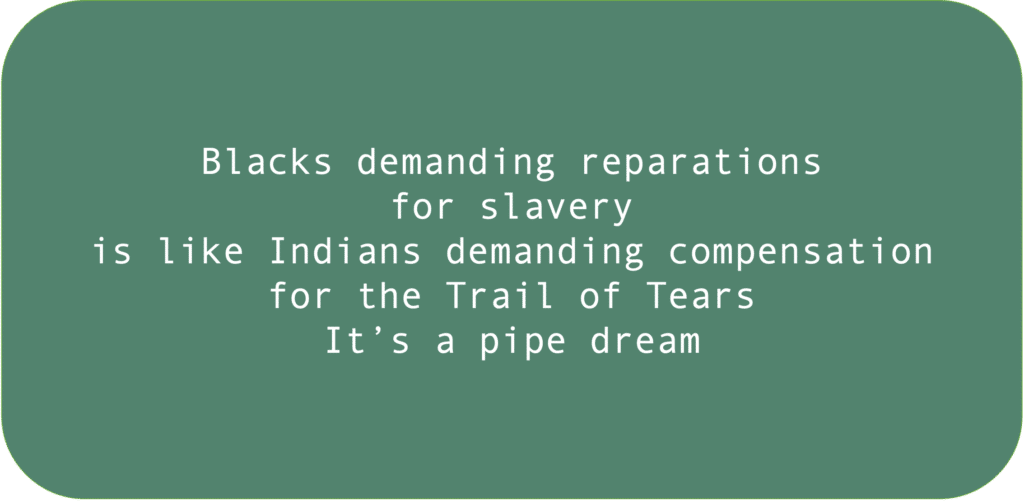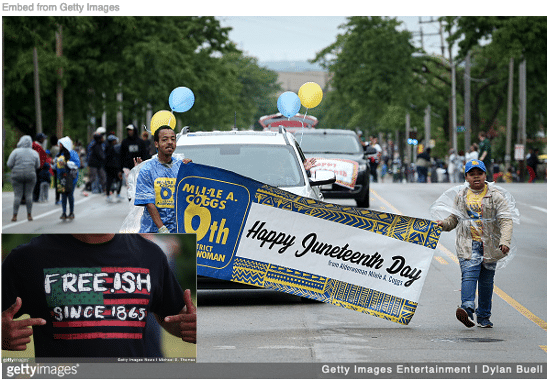
Juneteenth and reparations for slavery
Juneteenth commemorates the end of slavery in the United States. It stems from slaves in Galveston, Texas, not being informed of their emancipation until June 19, 1865.
That was two and a half years after President Abraham Lincoln’s Emancipation Proclamation took effect on January 1, 1863.
What about reparations?
The US House of Representatives marked Juneteenth this year by holding a hearing on reparations. It featured Senator Cory Booker, actor Danny Glover, and writer Ta-Nehisi Coates. They all made the “Case for Reparations.”
Sen. Cory Booker said in a panel that the US needs to address ‘persistent inequalities’ experienced by African Americans by discussing reparations, the idea that the descendants of slaves should be compensated for the injustices and cruelty their ancestors experienced. …
The panel took place the day after Senate Majority Leader Mitch McConnell said that he believed rights for black Americans had advanced enough to render reparations unnecessary.
(CBS News, June 19, 2019)
The arguments were passionate. But they will amount to much ado about nothing. That is, with respect to reparations. But it might evoke emotional support for a Juneteenth holiday.

McConnell has a well-earned reputation as the “grim reaper” for Democratic legislation. His declaration on reparations amounts to a death knell.
As it happens, I presaged this fate ten years ago. I refer you to “Senate Apologizes for Slavery; Blacks Say Show Us the Money (Reparations)!”
But McConnell even opposes any discussion of reparations. And here is how he justifies that opposition:
We’ve tried to deal with our original sin of slavery by fighting a civil war, by passing landmark civil rights legislation. We elected an African American president.
(CNN, June 19, 2019)
That is patently absurd, of course. Not to mention the hypocrisy it reflects. After all, this is the same McConnell who famously declared his intent to make Obama’s presidency an abject failure. That was not only unpatriotic but racist.
Moreover, he seemed to want to make even Blacks think twice about voting for another Black to be president of the United States.
Whites saw electing Obama as absolution
Far more troubling is that many whites share McConnell’s view. They seemed to think electing one Black president granted complete absolution. They seem to believe this one historic act was reparations enough for all past, present, and future sins of racism.
I addressed the fallacy of this belief in “Romney vs. Obama: Race (Still) Matters,” November 1, 2012.
That said, I oppose reparations for slavery for practical reasons. But I support reparations for colonialism for the same reasons. As it happens, Obama shares my take. Here, for example, is how the Huffington Post quoted him on the subject in an August 2, 2008, report under the headline, “Obama Opposes Slavery Reparations”:
I have said in the past – and I’ll repeat again – that the best reparations we can provide are good schools in the inner city and jobs for people who are unemployed.
Case closed!

Legacy Note: With over 5,600 posts spanning 20 years, I am easily the most prolific blogger on the most eclectic array of topics on the web. That makes The iPINIONS Journal an unparalleled archive of informed political and cultural commentary. Visit the ARCHIVES section in the sidebar or search by topic. You won’t find a more consistent, independent voice on world affairs.